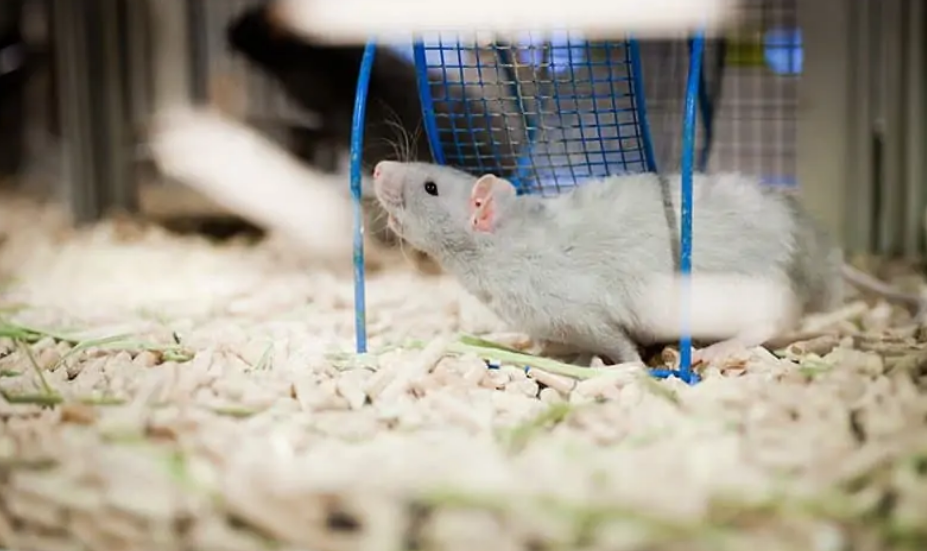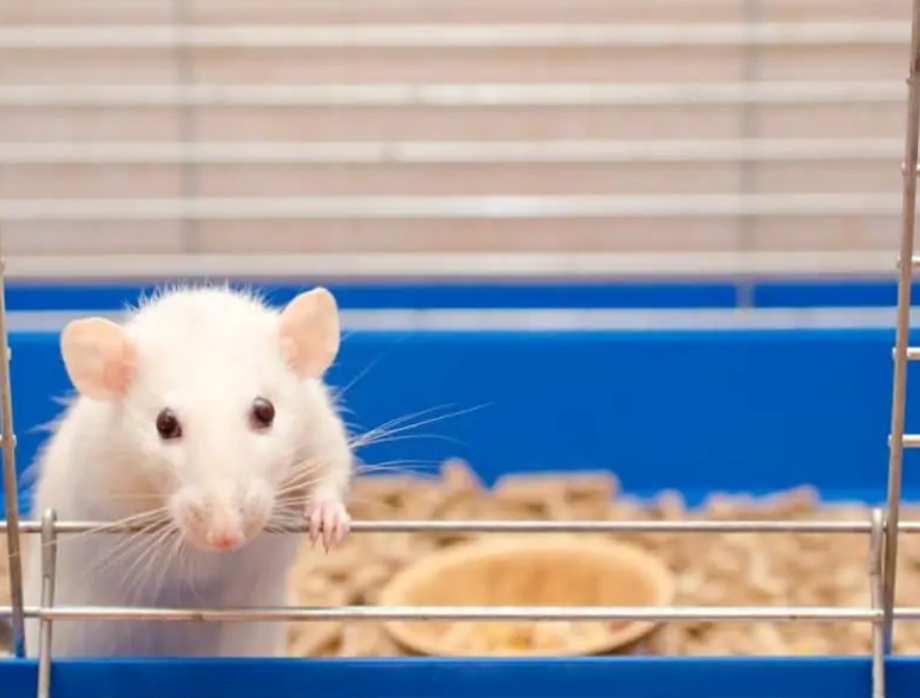Rats make great pets. They are intelligent, social animals that enjoy interacting with people. Rats also have a playful side and love playing games and exploring their surroundings. Rats require a moderate amount of care and can live for up to five years with proper care. If you’re thinking about adding a rat to your family, there are some things you need to know first. This article will discuss the proper way to take care of a pet rat.

Provide a Safe Home
Rats are natural climbers, so their homes should be tall enough to allow them to climb and explore. A glass aquarium or wire cage is ideal for rats. The cage should be 18 inches tall and have vertical bars spaced about ½ inch apart. The floor of the cage should be lined with paper or cloth bedding. This will provide a quiet place for your rat to sleep and absorb any urine or feces that the litter box may miss.

Be sure to include a litter box in your rat’s cage. Rats are clean animals and will use a litter box if one is provided. The litter box should be filled with an absorbent material such as wood shavings or paper pellets. You should also include beddings and hiding spots in your rat’s cage to keep them entertained. The best bedding for rats should reduce odor and be easy to clean. For hiding spots, you can use cardboard boxes or commercial rat houses.
Feed Them Well
Rats need constant access to fresh food and water. A diet of high-quality pellets, fresh vegetables, and fruit will keep your rat healthy and happy. Be sure to avoid foods high in sugar or salt, as these can cause health problems for rats. Use a large, heavy ceramic food dish for your rat’s meal. These bowls won’t tip over easily and help keep your rat’s food clean. A water bottle with a metal spout is the best way to provide fresh water for your rat. The metal spout will prevent your rat from chewing on the plastic and causing injury.
Provide Mental Stimulation
Rats are intelligent animals and need mental stimulation to stay happy and healthy. Include various toys in your rat’s cage, such as balls, chew toys, and puzzle feeders: the more type you can provide, the better. Rats also enjoy spending time outside of their cage, giving them plenty of opportunities to explore and play.
Chewing toys such as wooden blocks will help keep your rat’s teeth healthy and trimmed. Activity toys such as tubes, ladders, and wheels will provide mental stimulation and physical exercise for your rat. You can also make your toys out of household items. Just be sure that anything you put in the cage is safe for rats and cannot be chewed into pieces.
Handle Them Gently
Rats are delicate creatures and should be handled with care. Always support your rat’s body when picking them up. Never pick them up by their tail, as this can cause injury. Keep them close to your body to feel secure when holding your rat. Allow your rat to explore you and your clothing at their own pace. Never force your rat to interact with you if they seem uncomfortable. Rats enjoy being petted and will often sit still while being stroked. Just avoid their tails as they are delicate and can be easily injured.
Keep Your Rat Healthy
Rats are susceptible to several health problems. The best way to keep your rat healthy is to take them to the veterinarian for regular check-ups. Be sure to watch for signs of illness in your rat. Early detection and treatment of diseases can often mean the difference between life and death for rats. Some common signs of illness in rats include:
- Loss of appetite: A healthy rat will always be eager to eat. If your rat stops eating, it could be a sign of illness.
- Lethargy: Healthy rats are active and playful. If your rat is sleeping more than usual or seems sluggish, it could be a sign of illness.
- Changes in behavior: Sudden changes in behavior, such as aggression or lethargy, can be signs of illness in rats.
- Respiratory problems: Sneezing, wheezing, or difficulty breathing can all be signs of respiratory illness in rats.
- Skin problems: Itchy skin, bald spots, or scabs can all be signs of skin problems in rats.
Give Them Exercise
Rats love to play and explore. Provide them with plenty of toys and space to run and play. A wheel is a great way to give your rat exercise. Be sure to get a wheel specifically made for rats, as regular hamster wheels can be dangerous for them. It would help let your rat out of its cage several times a week to explore and play. Rat-proof your home first by removing any small objects they could choke on and covering any electrical cords. The best way to rat-proof your home is to put them in their room where they can’t get into trouble.
Provide Socialization
Rats are social animals that enjoy interacting with people. Spend time every day playing with your rat. Get them used to being handled by gently picking them up and petting them. Some rats even enjoy being held like a baby and sit happily in your arms. The more time you spend socializing with your rat, the more bonded you will become. In addition, bonding comes with its benefits. A bonded rat is a happier and healthier rat. It also makes it easier to handle them for vet visits and grooming.
Keep Their Cage Clean
A clean cage is essential for a healthy rat. Be sure to scoop out the litter box daily and change the bedding weekly. The entire cage should be cleaned and disinfected every month. Usually, a simple solution of water and vinegar is all you need to disinfect your rat’s cage. You can take simple steps to ensure your rat cage is always clean.
- Scoop out the litter box daily
- Change the bedding weekly
- Clean and disinfect the cage monthly
Pet rats are amazing creatures that make wonderful pets. These loving and intelligent animals need plenty of care and attention to stay healthy and happy. However, it is essential to respect their space and allow them to approach you on their terms. With proper care, rats make wonderful pets that will bring joy to your life for many years to come. A rat might be the perfect fit if you’re in the market for a petite pet.






